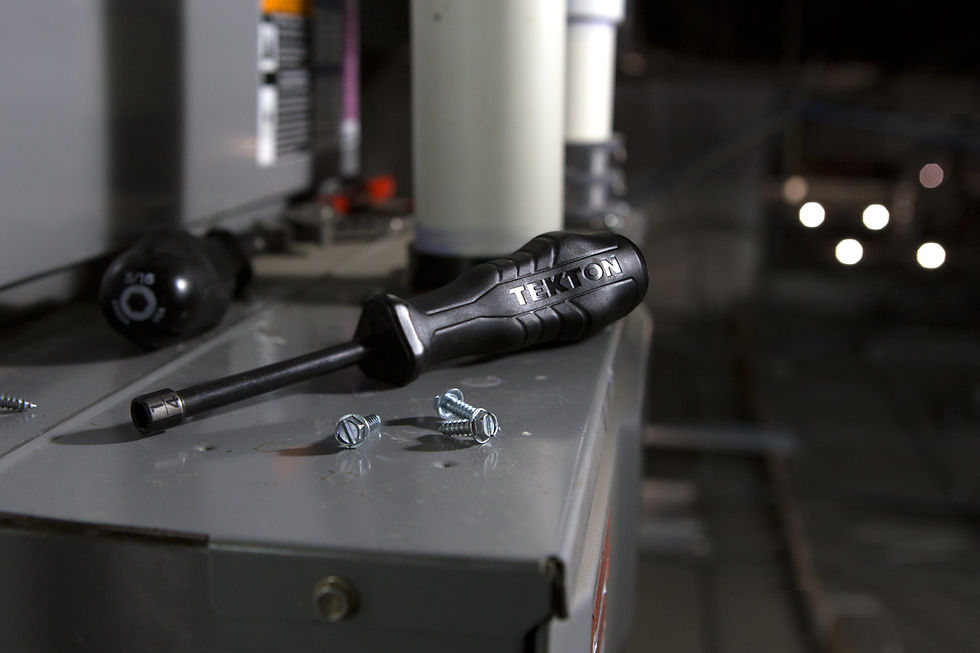How to Check the Functionality of Your Furnace?
- Total Line
- Dec 31, 2024
- 3 min read
Updated: May 28
As the temperatures dip in North Vancouver, your furnace becomes the heart of your home, keeping you warm and cozy. But what happens when it starts acting up? Should you roll up your sleeves and fix it yourself, or call in the pros? Here’s your guide to checking the functionality of your furnace, including DIY troubleshooting tips and signs it’s time to call Total Line Heating & Cooling.

Start with a Basic Functionality Check
Before you panic or pick up the phone, do a quick assessment of your furnace’s performance:
Is the thermostat set correctly? Sometimes, it’s as simple as adjusting the temperature or checking the batteries in your thermostat.
Is your furnace making unusual noises? Strange clanging or banging sounds could indicate loose parts or a bigger issue.
Is it blowing cold air? A furnace blowing cold air could mean a minor issue like a tripped breaker or a serious problem like a malfunctioning heat exchanger.
If your furnace passes this basic test, you’re off to a good start. If not, let’s explore what you can do on your own and when to call in the experts.

DIY Furnace Troubleshooting Tips
Some furnace issues are simple enough to fix on your own. Here are a few things you can safely check and resolve:
1. Check the Air Filter
A dirty air filter is one of the most common causes of furnace problems. If your furnace is running but not heating effectively, try replacing the filter.
How often to replace: Every 1-3 months during heavy usage seasons.
Why it matters: A clean filter improves airflow and efficiency.
2. Inspect the Circuit Breaker
If your furnace won’t turn on, head to your breaker box. A tripped breaker can cut power to your furnace. Resetting it may solve the problem.
3. Clean the Vents and Registers
Blocked vents can restrict airflow, making your furnace work harder than it should. Remove any obstructions like furniture or dust buildup.
4. Check for Thermostat Issues
If your thermostat isn’t communicating with your furnace, it might need new batteries or a reset. Ensure it’s set to “heat” mode.

When to Call the Professionals at Total Line
While some fixes are DIY-friendly, others require the expertise of a certified technician. Here are the scenarios where it’s best to call Total Line Heating & Cooling:
1. Unusual Noises Persist
If your furnace sounds like it’s auditioning for a horror movie, it’s time for professional help. Grinding, banging, or whistling noises often indicate mechanical issues like a failing motor or loose components.
2. Inconsistent Heating
If some rooms are warm while others are freezing, there may be an issue with your ductwork or blower motor. Total Line can diagnose and fix uneven heating efficiently.
3. Frequent Cycling
Does your furnace turn on and off frequently? Known as “short cycling,” this can be caused by a dirty sensor, overheating, or other complex problems that require professional attention.
4. Persistent Cold Air
If your furnace blows cold air despite resetting the thermostat and checking the filter, it could point to a malfunctioning burner or heat exchanger—a job for trained professionals.
5. Carbon Monoxide Concerns
If you notice soot around your furnace, or if your CO detector goes off, shut the system down immediately and call Total Line. Carbon monoxide leaks are serious and require urgent expert repairs.

Why Choose Total Line for Your Furnace Repairs?
At Total Line Heating & Cooling, we’re more than just furnace repair experts—we’re your partners in comfort. Here’s why North Vancouver homeowners trust us:
Certified Technicians: Our team is trained to handle everything from minor repairs to major overhauls.
Transparent Pricing: We explain the problem and costs upfront, so there are no surprises.
Emergency Services: Furnaces don’t follow a schedule, but we do. Call us 24/7 for urgent repairs.
Comprehensive Maintenance Plans: Prevent future problems with our regular tune-up services.

Pro Tips to Keep Your Furnace in Top Shape
Schedule Annual Maintenance: A professional tune-up can catch small problems before they become expensive repairs.
Replace Filters Regularly: A clean filter means better airflow, higher efficiency, and less strain on your furnace.
Upgrade Your Thermostat: A smart or programmable thermostat can optimize your heating schedule and reduce energy costs.
Conclusion
Checking your furnace’s functionality doesn’t have to be intimidating. With a little DIY effort, you can solve many minor issues and ensure your system is running smoothly. However, when the problem goes beyond your expertise, don’t hesitate to call Total line Heating & Cooling.
Contact us today at [604-765-1299] or schedule a professional inspection or repair. Let us take the guesswork out of furnace maintenance and keep your home warm all winter long.
Don’t wait for a chilly wake-up call—call Total Line today!




Comments